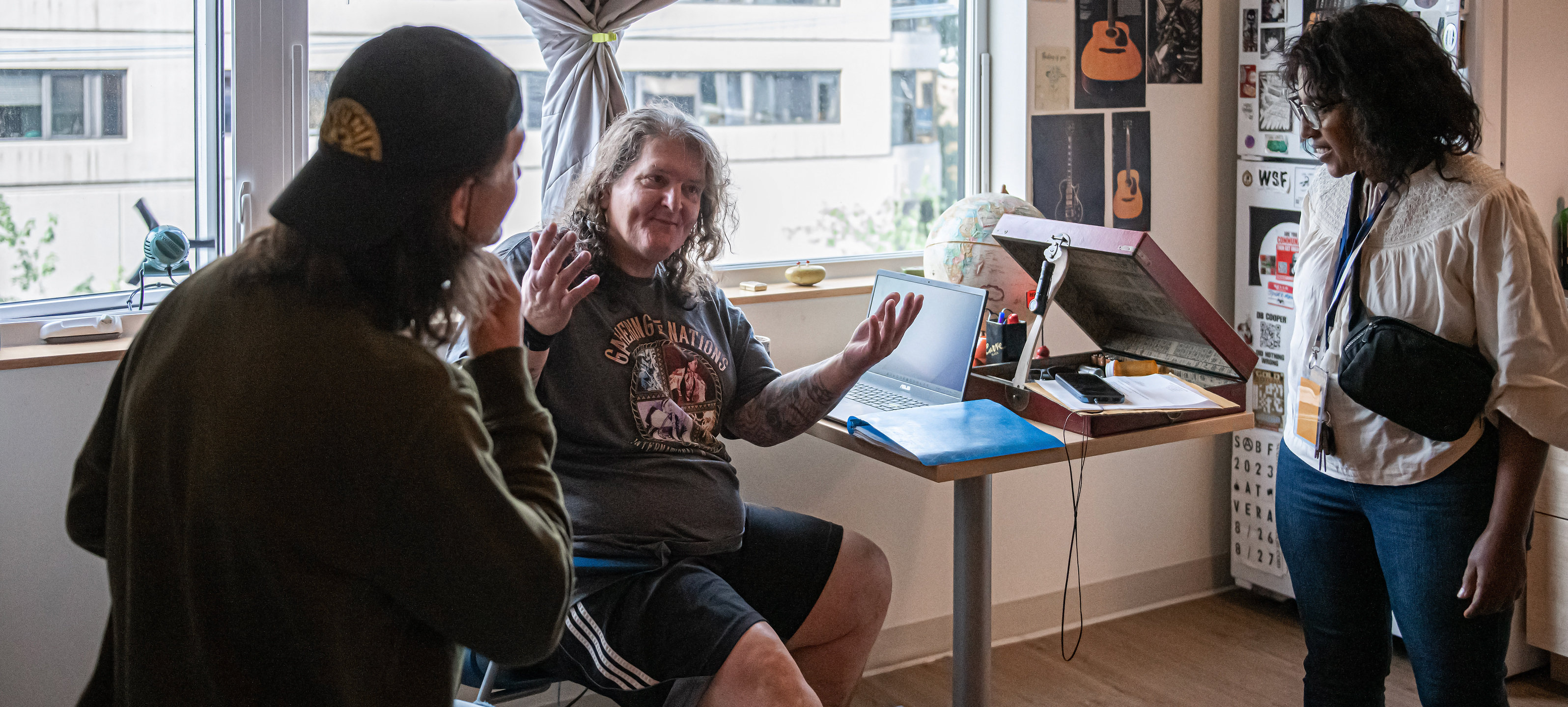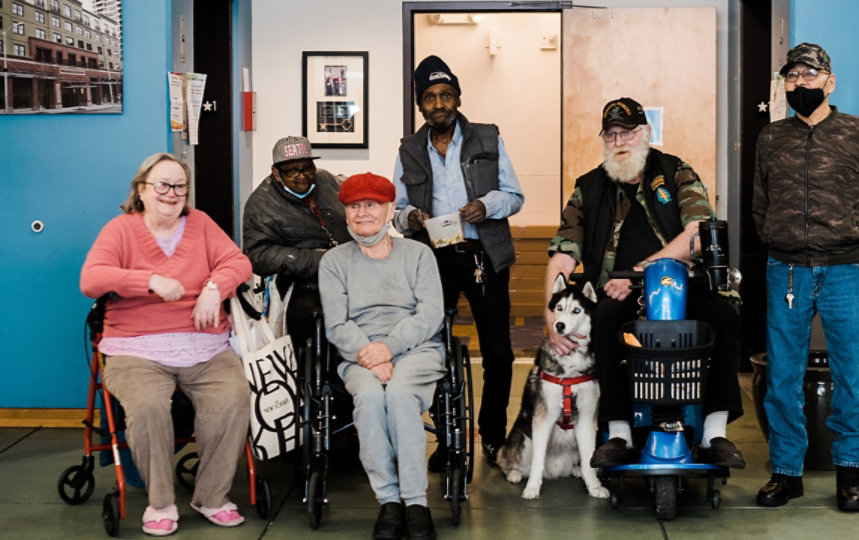Plymouth Housing
Learn more about the organization
Plymouth Housing
Published
Dec 2, 2024
Providing a home—and a space for well-being
What do refrigerators, hand sanitizer, and break dancing have in common? They each represent an out-of-the-box way Microsoft directly and uniquely supports Plymouth Housing, a vital community partner providing homes and critical support for 1,400 formerly homeless people in Seattle and East King County.
Microsoft employees show up for their community in myriad unique ways. Dozens of volunteers donated money to buy 100 fridges for a new Plymouth community, then toured the homes as construction was underway. At the peak of the COVID-19 pandemic, Microsoft donated thousands of meals to residents who were sheltering in place. Donations also included hand sanitizer, and hygiene supplies straight from Microsoft buildings to help Plymouth communities that were in serious need of resupply. And Microsoft employees with break dancing talent are regular stars on the dance floor at Plymouth’s renowned annual fundraiser, Seattle Dances. “Our relationship runs deep”, Shoko says. “We regularly turn to them and ask for help to improve the lives of our residents. That includes financial support, volunteerism, and advocacy.”
Microsoft has provided grants to the nonprofit for 25 years straight and contributes to capital campaigns. Meanwhile, employees also serve on Plymouth’s boards and run Giving Campaign events. Volunteers serve meals to residents and write notes for welcome baskets—thoughtful touches that make a new apartment feel like home. “This is a true partnership, one whose impact helps people thrive in their new environment,” Toyama says.
“Microsoft has contributed in these really unique ways to support our mission,”
—Shoko Toyama, VP and Chief Development Officer at Plymouth Housing.

Growing to address the housing crisis
More than 16,000 people were experiencing homelessness in King County during a 2024 count of unsheltered people, a 23 percent increase over 2022 numbers. “There’s also a fentanyl crisis in our community, combined with a strain on our health care system,” Toyama says. “That leaves a gap in the services the most vulnerable need, and that’s where Plymouth Housing comes in.”
The Seattle-based nonprofit provides long-term housing for chronically homeless single adults, nearly all of whom are living with at least one disability. Many also have a chronic health condition or mental illness. The nonprofit also integrates behavioral health care, on-site medical care, and community building events, into its 17 housing sites. Toyama estimates that up to 6,000 people in King County could be eligible for residential care at Plymouth if only there were enough room.
Expanding housing capacity to meet the region’s growing need is one of Plymouth Housing’s top priorities. In recent years, generous donors including Microsoft have enabled the nonprofit’s steady growth. Microsoft support included a $5 million gift that helped build and open six new housing communities. This contribution enabled Plymouth to welcome 600 new residents into fully furnished apartments. The nonprofit is also adding communities to East King County, and opened the first permanent supportive housing development in Bellevue in 2023. A second eastside location is planned for Redmond.
Leaders from Microsoft have enthusiastically supported Plymouth's East King County expansion, speaking to city councils and neighbors about the importance of increasing housing locally. “Microsoft advocacy really helps us grow,” Toyama says. “These efforts go a long way in bringing communities along and are critical to our success in joining new neighborhoods.”
Adapting to changing needs
Reliable, safe housing can literally turn a life around, as Charles (name changed for privacy) can attest. As a refugee who spoke little English when he arrived in the US, he often lived on the streets and struggled with substance use disorder until he was referred to Plymouth Housing. With an apartment of his own and access to Plymouth’s on-site Recovery Support Program, among other resources, Charles has stayed sober and housed. He says, “It’s just a little thing, but the staff here show they’re concerned about me. That’s how we need to live, by watching each other’s backs.”
Charles’s story demonstrates that while housing is a primary priority, Plymouth residents often need wraparound support to achieve stability and meet their needs. With counseling, reliable healthcare, and social services, residents are regaining resiliency and pursuing their goals, such as family reunification, gaining veteran’s benefits, and reducing alcohol and substance use. “This builds trust with our team, so the people we serve can heal and recover,” Toyama says.
The model works: 95 percent of Plymouth residents stay housed permanently. “We’re very proud of this,” Toyama says. “And we’re adapting to provide more whole-person care so everyone living in our communities can continue their journey toward greater well-being.”
One Future

Innovating for good together


